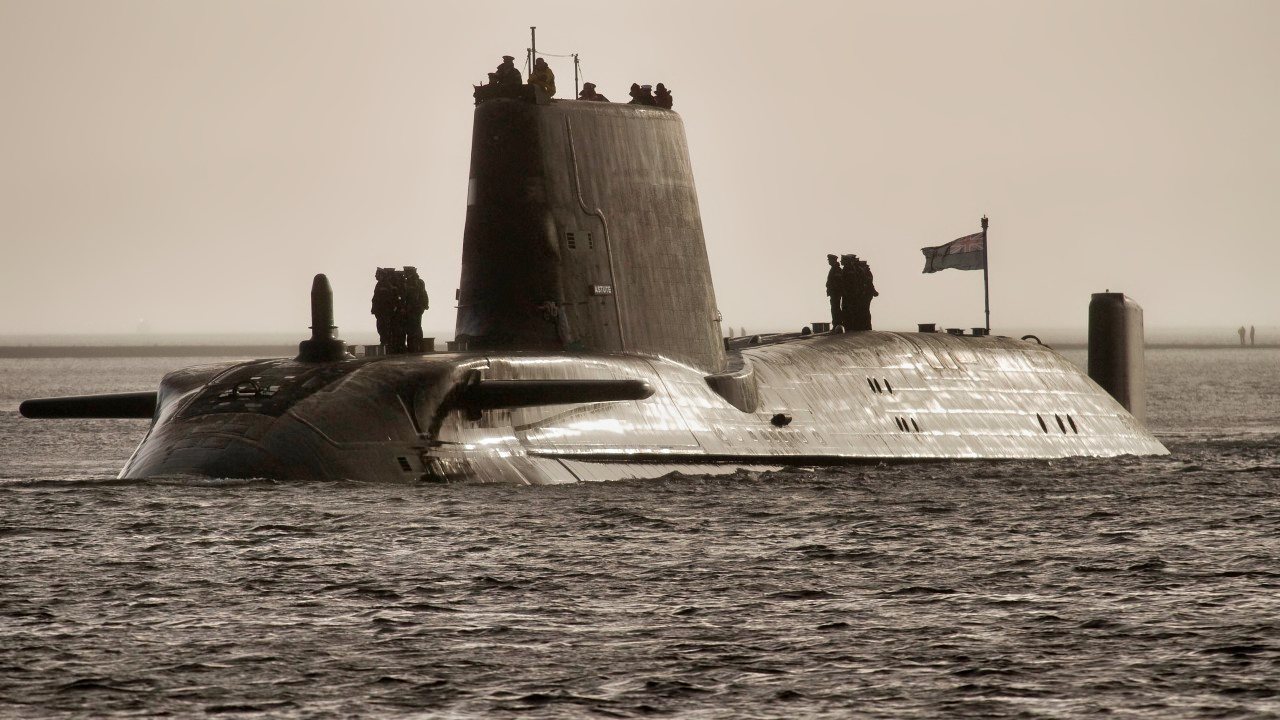Sir, We Hit an Underwater Mountain: How a British Submarine Survived the Unthinkable

Summary and Key Points: In 2007, the British Royal Navy's nuclear-powered submarine HMS Superb collided with an undersea mountain in the Red Sea, resulting in significant damage to its sonar equipment but no casualties.

-The accident occurred due to a navigational error by Commander Steven Drysdale, who misread the depth of an underwater hill.
-The submarine had been experiencing technical issues and was under pressure to arrive on time for operations in the Gulf, leading to the error.
-HMS Superb was decommissioned in 2008, marking the end of its service in the Royal Navy.
HMS Superb Submarine Collision: Navigational Error Leads to Red Sea Mishap
In 2007, the British Royal Navy’s HMS Superb submarine was damaged after it collided with rocks in the Red Sea. According to reports, the nuclear-powered ship hit an undersea mountain while diving in the ocean.
Although no casualties resulted from the mishap, the sonar equipment onboard the submarine was seriously damaged. Some crew members believed the ship had struck the ocean floor when the collision occurred and were rationally concerned with the nuclear reactor on board. Ultimately, the UK’s Ministry of Defense confirmed that the reactor was “completely unaffected” and that all 112 crew members on board were uninjured.
An Overview of the Collision
The Independent later reported that the submarine crashed because its commander failed to spot an underwater hill on navigational charts. According to statements given to a court martial, Comm. Steven Drysdale misread the mound as being positioned at a depth of 723 meters, rather than 132 meters, and ordered the submarine to dive down to 250 meters.
Following the collision, HMS Superb returned to the UK instead of continuing its planned deployment. As detailed by the Independent, “Capt. Stuart Crozier, prosecuting, told the hearing that the submarine had been suffering from technical problems, causing it to lose speed. He said there was pressure on Commander Drysdale to ensure that the submarine arrived in the Gulf on time for planned operations. Capt Crozier said Commander Drysdale ordered a new route to be plotted which cut about four miles off the previous route. He also ordered the submarine to dive at a deeper depth, where there was colder water which would allow the submarine to travel faster.”
Comm. Drysdale was ultimately sentenced to a reprimand, which remained on his record for three years following the mishap.
Introducing HMS Superb
The Royal Navy’s HMS Superb was constructed by Vickers Shipbuilding Group at Barrow-in Furness. As part of the service’s Swiftsure class, HMS Superb was designed with a uniquely shaped hull that had a different shape and was much larger than the hulls of previous submarine classes. Each ship in this class, except for Swiftsure, featured a shrouded pump-jet propulsor which was believed to be as much as 50% more efficient than propellers featured on previous submarines.
HMS Superb (S109) was the third Swiftsure submarine to be completed, commissioned into the Royal Navy in 1976. Notably, Superb was the first British submarine to ever sail under the polar ice caps in the Arctic Ocean. Operationally, it was deployed to the Indian Ocean in the early 2000s to support Operation Veritas as part of the War in Afghanistan.

Following the Red Sea collision, HMS Superb was decommissioned in September 2008. The last boat of the class in service, Sceptre, was retired in 2010.
About the Author: Maya Carlin
Maya Carlin, National Security Writer with The National Interest, is an analyst with the Center for Security Policy and a former Anna Sobol Levy Fellow at IDC Herzliya in Israel. She has by-lines in many publications, including The National Interest, Jerusalem Post, and Times of Israel. You can follow her on Twitter: @MayaCarlin.
All images are Creative Commons. The main image is of the actual submarine. All others are stock images of Royal Navy attack submarines.
From The Vault
href="https://nationalinterest.org/blog/buzz/did-russia-made-missile-really-hi..." target="_blank">Did a Russian-Made Missile Hit an F-35?
href="https://nationalinterest.org/blog/buzz/russias-kilo-class-submarine-call..." target="_blank">Russia Has 1 Submarine Called the Black Hole
